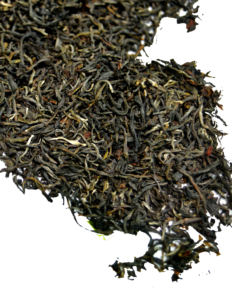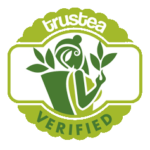
Long before cut, tear and curl (CTC) dominated tea processing in the West, India exported sizeable quantities of handmade orthodox tea to an appreciative world market.
Small factories at small gardens cultivated the art of rolling and twisting and shaping tea. Artisan tea is labor intensive and tea masters are more selective about the leaves they accept. This is necessary to create exquisite teas, but production is hard to scale.
During the years following the 1948 revolution, when China withdrew its tea from world markets, legacy estates in Sri Lanka and India were forced to step up production of loose leaf to meet demand. European multinationals rushed to develop new tea lands in Africa.
As tea from China once again became plentiful, India began shipping CTC at prices averaging less than $1 per kilo to retain its market share. Only recently has it doubled and doubled again that average price with the addition of greater quantities of orthodox tea. Sri Lanka gets a much better price and Kenya ships much larger volumes of black CTC (supplying price-sensitive Middle Eastern lands such as Egypt and Asian countries including Pakistan and Russia) but India is now making a bid for quality that will improve both its CTC and orthodox production.
This has led to a resurgence in the small factories. One example is The Studio, a modern adaptation of orthodox processing that is both efficient and versatile. Tea makers fashion 11 different styles of green, black, white and oolong tea using machinery that treats tea leaves with dignity. The Studio is managed by women who operate the equipment and work with local smallholders to insure superior tea.

China has since reclaimed its standing as the tea exporter of top value, producing orthodox green teas and significantly increased its output of black tea, including CTC grades. China retains its centuries of expertise but groups growers into sprawling regions specializing in a few high-value teas. Longjing (Dragon Well) is perhaps best known. Trees there are plucked only once a year and in small quantities. These teas are then sold at prices India has yet to achieve.
A growing consensus of India’s tea industry recognizes that with its huge and expanding domestic market and per capita consumption on the rise, exporters should concentrate on serving the higher end of the global market.
Tea executives support Tea Board of India efforts to improve standards. India currently meets food safety and export thresholds for pesticide residue for shipments to the European Union, Japan, and North America. This has greatly increased the inflow of foreign earnings and raised the average price to more than $4 per kilo.
The next step is to rid the world of inferior tea.
 Several years ago Darjeeling became the first tea growing region to earn the European Union’s Protected Geographical Indication. The seal was instrumental in helping authorities confiscate tea masquerading as Darjeeling. Prices rose and the quality of non-diluted Darjeeling returned some of the luster to a reputation tarnished by fraud.
Several years ago Darjeeling became the first tea growing region to earn the European Union’s Protected Geographical Indication. The seal was instrumental in helping authorities confiscate tea masquerading as Darjeeling. Prices rose and the quality of non-diluted Darjeeling returned some of the luster to a reputation tarnished by fraud.
India’s tea industry then introduced the Trustea which joins Fairtrade, Rainforest Alliance-UTZ, and the Ethical Tea Partnership (ETP) as reliable third-party certifiers. The emblems of these organization help assure consumers that the tea they enjoy is sustainably produced.
Still, there is more to be done in the quest for quality.
 India is now aggressive policing labor abuse and recently canceled licenses to operate 18 factories in Assam that were cited for not meeting Food Safety and Standards Authority of India (FSSAI).
India is now aggressive policing labor abuse and recently canceled licenses to operate 18 factories in Assam that were cited for not meeting Food Safety and Standards Authority of India (FSSAI).
Perhaps the most far-reaching new policies are setting harvest begin dates and end dates to insure tea plants are rested. India now prohibits the sale tea for less than INRs60 ($0.85) per kilo.
Applying technology to increase productivity and improve taste is ongoing. One recent innovation is a cell-phone app called the Tea Assistant (Chai Sahayak). The app displays current prices for farmers selling to bought leaf factories and provides weather reports and warns of infestations. Notices, tips for improving yield and proper care for tea are presented in both Assamese and English.
Together these initiatives are working. It is with pride that Tea Journey sent tea expert Frank Miller on a tour of India that will introduce readers to dozens of exceptional gardens and many remarkable teas.

Tea Journey a collaborative venture, self-financed by editors, writers, tea consultants, tea educators and tea experts globally. Think of us as a digital caravan of story tellers who travel to origin and return with authoritative, elusive and exclusive articles, photos and video that will help you to discover your tea destiny.
This month’s cover photos by Ellen Kanner